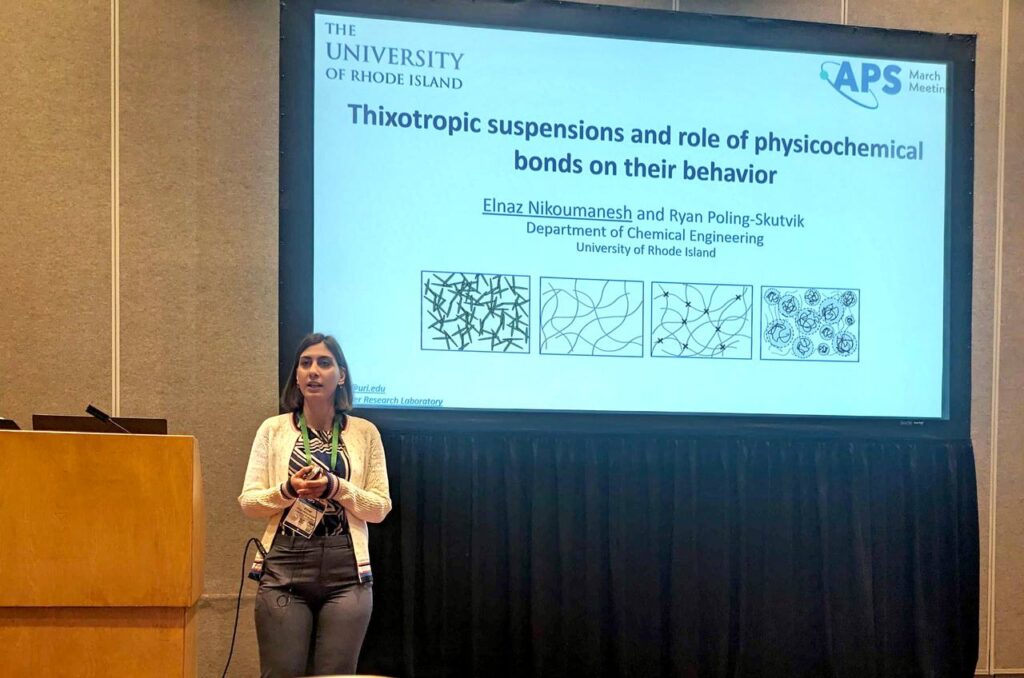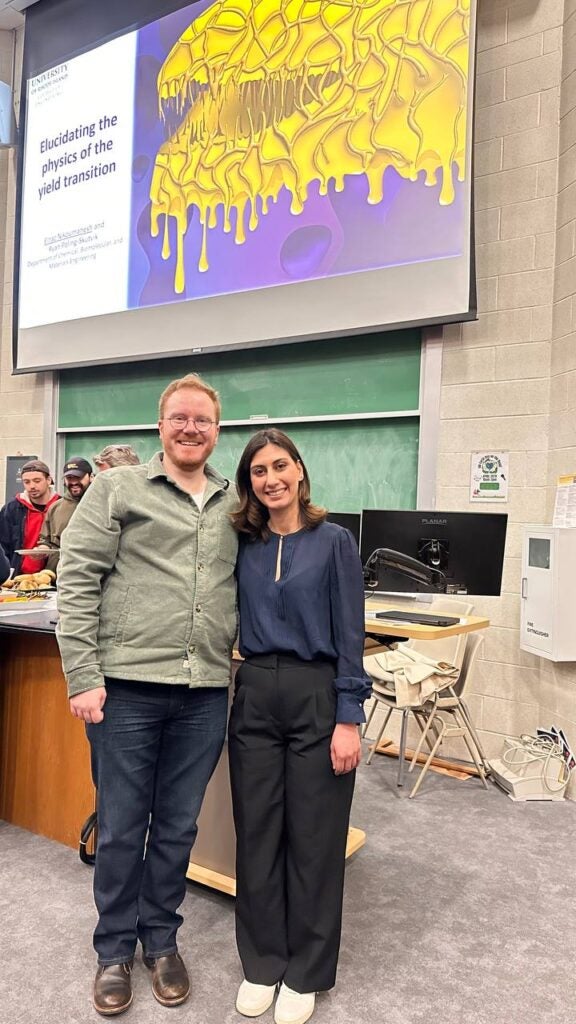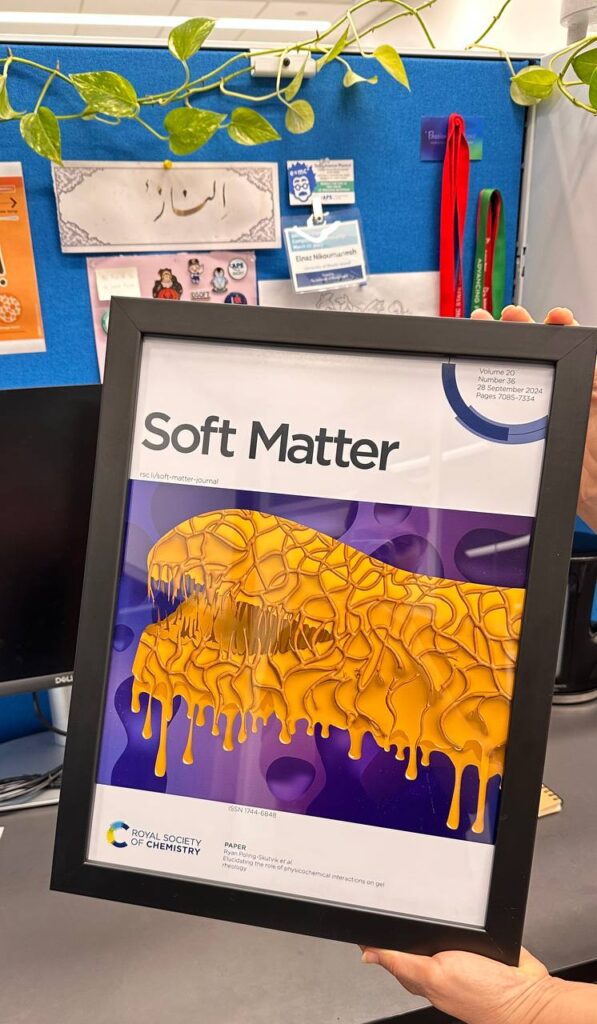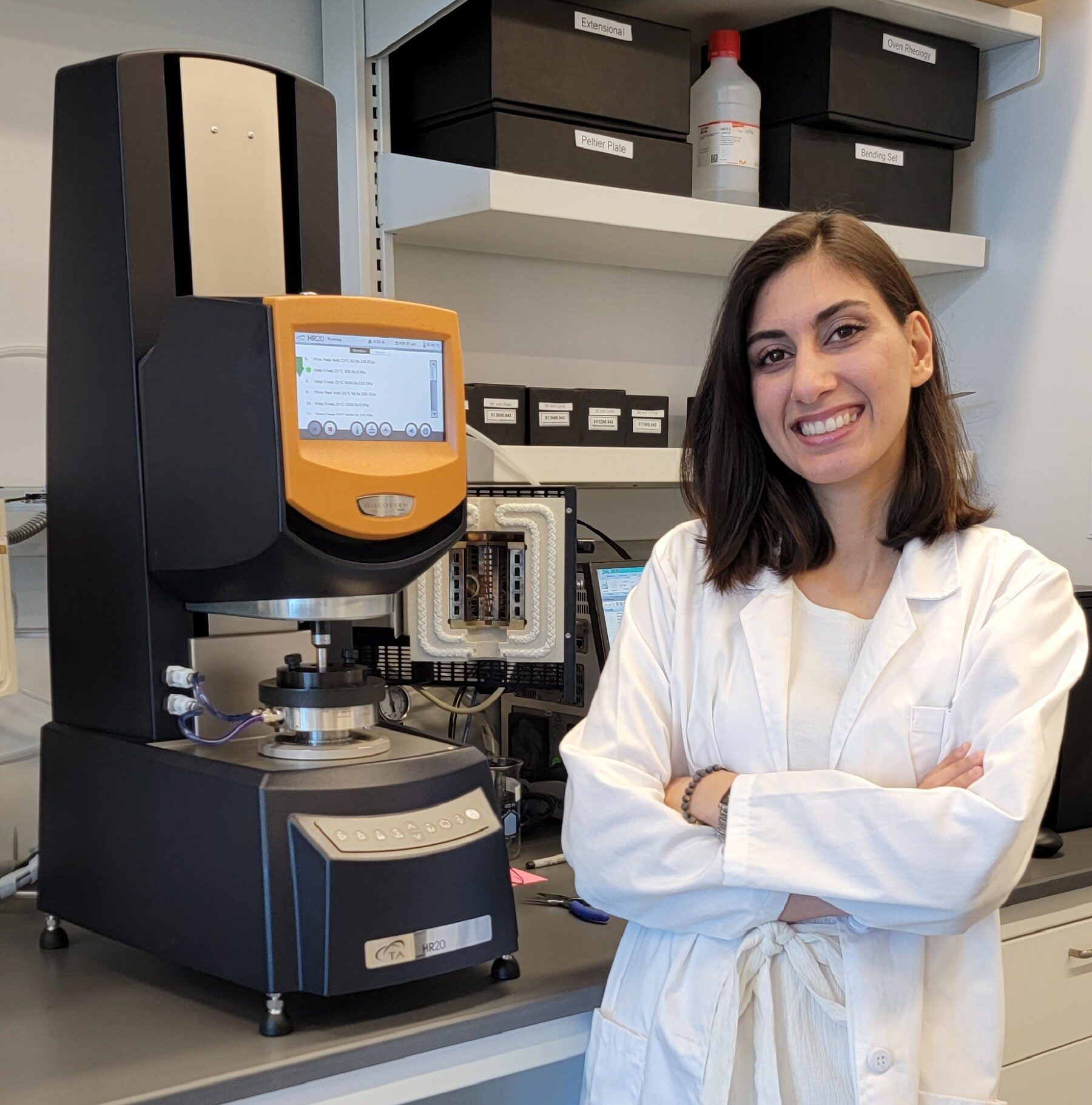Dec. 15, 2025 – Mechanical engineering, chemistry and physics may seem like three separate areas of study, but they overlap in more ways than one. Elnaz Nikoumanesh, a fifth-year Ph.D. chemical engineering candidate, knows that well. She studied mechanical engineering during her undergraduate and master’s studies, but became very interested in experimental work with biological and soft materials. This led her to the chemical engineering Ph.D. program at the University of Rhode Island, specifically to research soft materials and rheology, a type of physics that studies how matter deforms and flows.

Nikoumanesh, of Iran, joined assistant professor Ryan Poling-Skutvik’s research lab for soft matter research in 2021. “It was one of the best decisions I’ve ever made, as I have learned and grown both personally and professionally in this group,” said Nikoumanesh.

Her research focuses on understanding and applying the rheology of soft materials, particularly colloidal gels. She developed a novel rheological protocol, called serial creep divergence, to characterize the time-dependent evolution of structure and properties in thixotropic yield stress fluids. This approach enables the first clear quantification of yield stress in these specific complex materials for prototypes that require flexibility, elasticity, and shock absorption and eliminate expensive or time consuming custom molds.
By adjusting how quickly a material rebuilds its internal structure after being pushed or mixed, they could create gels that flow easily through a printer nozzle but then solidify almost immediately once deposited. If a material is too runny or too stiff, it simply won’t print well. But by precisely controlling its properties temporarily the material can produce stable, well-defined shapes from soft, gel-like materials.
“One of my favorite memories in the lab was when our custom-built 3D printer produced its first successful print,” said Nikoumanesh. “It took months of hard work and teamwork, and seeing it finally come together was incredible. In our group, I worked with our undergraduate students to set up the printer and develop printing protocols that bridge our fundamental discoveries about thixotropy with practical 3D printing of soft materials.”

During her time at URI, she has had three papers published in multiple leading journals. Soft Matter even featured her paper, “Elucidating the Role of Physicochemical Interactions on Gel Rheology” on the journal’s cover. “Publishing my first paper was another unforgettable moment,” said Nikoumanesh. “I also really enjoyed mentoring undergraduate students and watching them grow as researchers. Overall, as one of the first Ph.D. students working with Dr. Poling-Skutvik, it has been exciting to see the lab grow and to be part of that journey.”
Nikoumanesh received several awards over the last five years and traveled to many locations for conferences and presentations including the Women in Chemical Engineering Travel Award to present her research at the 2025 AIChE Annual conference and selection as one of MIT’s Rising Stars in Mechanical Engineering. She also received multiple student travel awards and in 2024, she won first place at the annual URI Chemical Engineering Research Symposium and was invited to speak at the Society of Rheology Future of Rheology Seminar Series.

Beyond academia, she gained valuable industry experience as a graduate research and development intern at 3M Company in Minnesota in the summer of 2024 and will complete a co-op in formulation at Vertex Pharmaceuticals in Boston this month. The program offers students an opportunity to learn about the pharmaceutical industry through mentorship and research experience.
After the co-op, she plans to return to URI to finish and present her Ph.D. dissertation and publish additional research papers. Even after almost five years in Rhode Island, Newport is still one of her favorite places in the state. “Overall, I love Rhode Island’s beaches, the beautiful islands, and all the spots you can explore. Brickley’s Ice Cream in Wakefield is another favorite, it became a sweet summer tradition to hang out there with friends,” said Nikoumanesh.
Once obtaining her Ph.D., she hopes to apply her knowledge and experience in industry to design innovative products and make a real-world impact.

